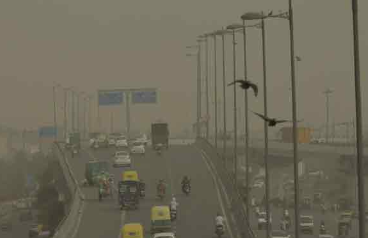National Clean Air Programme Launched
The Union Environment Minister Harsh Vardhan launched the National Clean Air Programme (NCAP). The programme aims to tackle the challenge of increasing pollution in the cities and towns.
Features of the Programme
The important features of the programme are:
- It is a five-year action plan with a tentative target of 20-30% reduction in concentrations of PM10 and PM2.5 by 2024, with 2017 as the base year.
- The plan covers 102 non-attainment cities, across 23 states and Union territories, which were identified by the Central Pollution Control Board (CPCB) on the basis of their ambient air quality data between 2011 and 2015.
Non-attainment cities
Cities are considered as Non-attainment cities, if they were consistently showing poorer air quality than the National Ambient Air Quality Standards. Cities included under the list of Non-attainment cities Delhi, Varanasi, Bhopal, Kolkata, Noida, Muzaffarpur, and Mumbai.
- The centre plans to scale up the air quality monitoring network across India under the programme.
- Studies would be conducted across 102 non-attainment cities to ascertain pollution sources and the extent of their contribution.
- The Apex committee in the Ministry of Environment would periodically review the progress of these components on the basis of appropriate indicators, which will be evolved.
- Each city would be asked to develop its own action plan for implementation based on sources of pollution.
- A three-tier system, including real-time physical data collection, data archiving, and an action trigger system in all 102 cities, besides extensive plantation plans, research on clean-technologies, landscaping of major arterial roads, and stringent industrial standards are proposed under the plan.
- State-level plans of e-mobility in the two-wheeler sector, rapid augmentation of charging infrastructure, stringent implementation of BS-VI norms, boosting public transportation system, and adoption of third-party audits for polluting industries are proposed part of the plan.
- The plan document is not binding on the states since the document is not a legal document.
The Environmentalists criticised the plan for not making it legally binding. The Environmentalists demand a more stringent action to ensure the safety and well being of millions of lives risk because of the continuously growing air pollution crisis.
Month: Current Affairs - January, 2019


